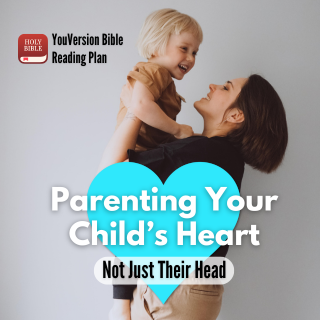Today’s article is a guest post by my good friend, Ben Watt. Ben is blessed to be married to Kristina, dad to 2 boys and 2 girls (Ben’s family pictured above), and has served the Lord in a variety of ministries, most recently as a family pastor. Connect with him at www.nextstepforguys.com or via Facebook @just1watt.
No doubt you’ve asked your child or teenager, “How was your day?” or “How are you doing?” only to receive a one-word answer like “fine” or “good.” Sometimes if we push for more, and they push back. “What do you want from me? I said I was ok.”
In other circumstances, our children may not feel heard. It’s not that we don’t care, but we don’t know how to engage with them well in conversation. So what is a loving parent who truly wants to know their child’s feelings and thoughts to do? Let me introduce you to a great idea for engaging your kids in more meaningful conversation! It’s called the FAST family check-in.
The acronym, F.A.S.T., is borrowed from the support group community (Feelings, Actions, Sobriety, Threats), but we’ve adapted it and redefined the letters to help foster deeper and more edifying conversations as a family.
“F” stands for “How are you feeling?”
I always remind everyone that “ok” and “fine” are not feelings. Use words like tired, happy, sad, mad, joyful, content, nervous, etc. The answer could be broad and recount your general feelings that day or week, or it could be more specific describing how you are feeling right now. As parents, don’t use your child’s answer against them. Just listen and if you feel it necessary, follow up with a good question about what made them feel that way. Do not get defensive if they are feeling angry or hurt. Answering this question must not come with consequences – protect everyone’s freedom to be honest.
“A” stands for action.
What action have you taken to learn more about, grow closer to, or serve God today? The answers we’ve heard range from… reading my Bible, or studying my memory verse, to helping the neighbor return their garbage cans to the house. The point is to encourage each other to be intentional about growing and serving the Lord, not to demean or condemn those who failed to take any positive action that day.
“S” stands for I’m sorry.
This is an opportunity to make things right with anyone in the family that you may have hurt, offended, disrespected, disobeyed, cheated, etc. I often remind our kids that it’s ok if there’s nothing they need to apologize for. They don’t need to invent something. “I can’t think of anything I need to apologize for” is a great answer! Sometimes the facial expressions of others in the family will reveal the one speaking has perhaps forgotten about an issue they need to make right. In this case, I may ask, “_____ is there something your brother/sister/parent did that’s bothering you?” The goal is reconciliation, not retaliation. This is occasionally the most precious part of the check-in as I, my wife, or one of our children humbly admit our faults and seek forgiveness publicly.
“T” stands for thankfulness.
We are looking for each person to share anything they are thankful for that happened that day. This helps us see the good gifts God has put in our lives every day and avoids vague, stale answers like “family” or “food.” Of course, we’re thankful for those things, but we’re trying to go deeper. Everyone should be able to come up with at least one thing.
Our family tries to have these guided conversations at least a couple of times a week (sometimes more, sometimes less). We’ve done the FAST check-in during a car ride, around the dinner table, or at night before bed. The key is that the whole family is together for the conversation. Each person should cover all four aspects of FAST on their turn.
Mom, Dad, or whoever is leading the conversation should model the FAST check-in at least once for the kids. After the first time, it really doesn’t matter who goes first, but I usually lead the conversation and ask each person to check in one at a time. Even our 3-year-old gets in on the fun and we often laugh hilariously at her answers. How are you feeling, Annabelle? “I feel great,” she says and giggles… What did you do today that was good (action)? “I played!”… Do you need to say you’re sorry to anyone? “Nope!”… What are you thankful for? “I’m thankful for everything.”
Most of the time these conversations move fairly quickly, but oh how rich they are!
Why not have a F.A.S.T. family check-in with those you love today?




